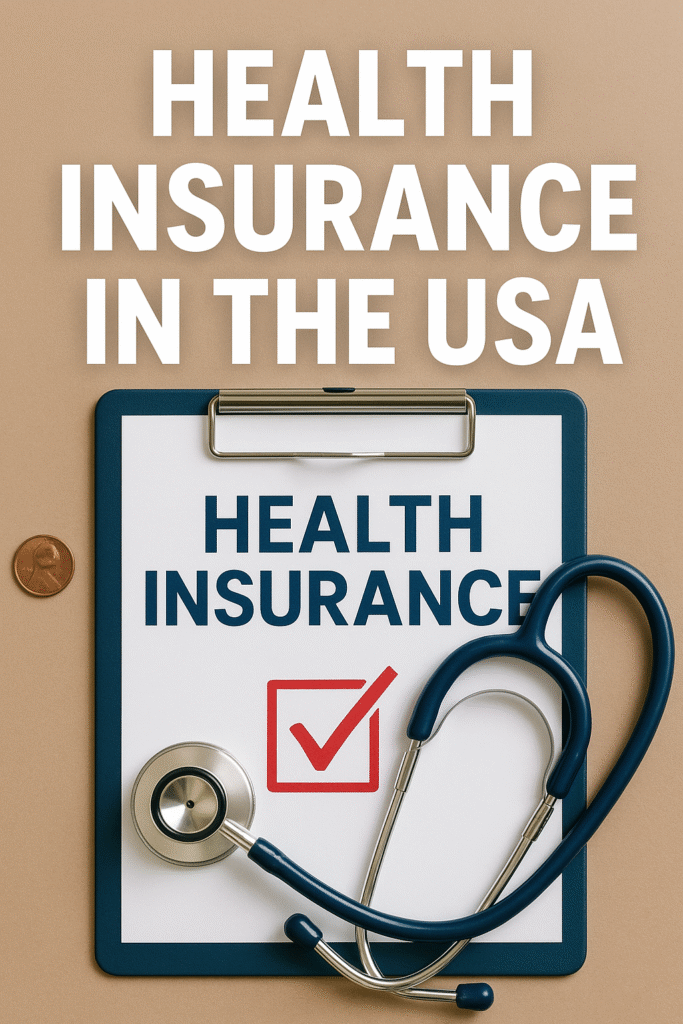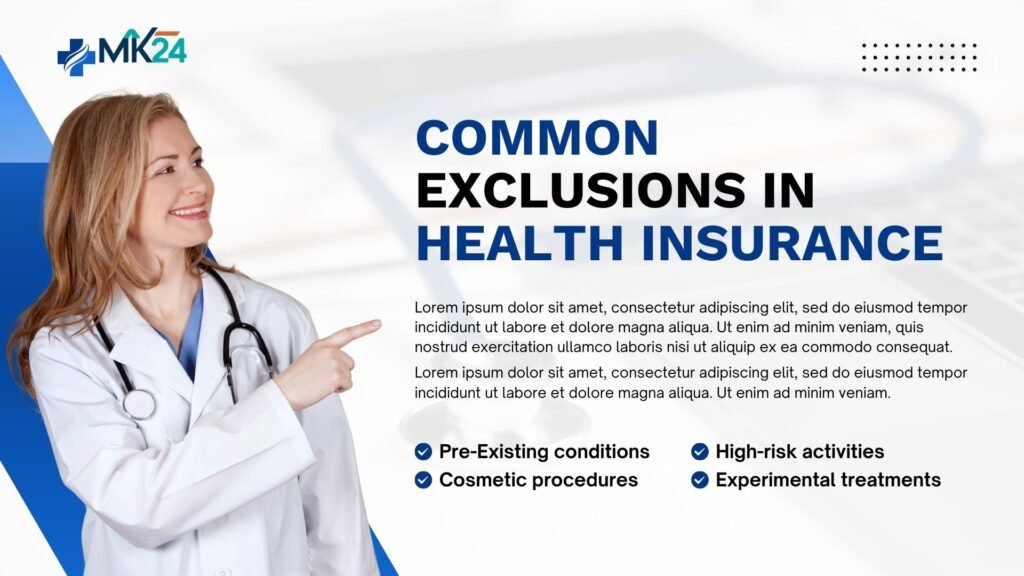Table of Contents
🇺🇸 What Kind of American Are You? 🤠
Outline for Long-form Article on Health Insurance
| Heading / Subheading | LSI Keywords |
|---|---|
| What is Health Insurance? | medical insurance, health coverage |
| Importance of Health Insurance in the USA | health protection, emergency coverage |
| Types of Health Insurance Plans | HMO, PPO, EPO, POS |
| Government-Sponsored Health Insurance Programs | Medicare, Medicaid, CHIP |
| Private Health Insurance Options | private healthcare plans, commercial insurance |
| Individual vs Group Health Insurance | employee health benefits, family coverage |
| Short-Term Health Insurance Plans | temporary insurance, gap coverage |
| Health Insurance Marketplace | Obamacare, ACA enrollment |
| How to Enroll in Health Insurance | healthcare.gov, insurance signup |
| Open Enrollment Period Explained | enrollment window, deadlines |
| Special Enrollment Period | qualifying life events, SEP eligibility |
| Health Insurance Costs | premiums, deductibles, co-pays |
| What are Premiums, Deductibles & Co-pays? | healthcare costs explained |
| Out-of-Pocket Maximum Explained | cost limits, max spend |
| In-Network vs Out-of-Network Care | network doctors, healthcare providers |
| Essential Health Benefits | minimum coverage, required benefits |
| Health Savings Accounts (HSAs) | tax-free savings, medical expenses |
| Flexible Spending Accounts (FSAs) | pre-tax contributions, medical costs |
| Understanding Policy Terms & Jargon | insurance terminology, policy guide |
| How to Compare Health Insurance Plans | plan comparison, best plan |
| Choosing the Best Health Insurance Plan | picking a plan, ideal coverage |
| Common Mistakes When Buying Insurance | buyer pitfalls, insurance tips |
| Tips to Lower Health Insurance Costs | saving on insurance, cost reduction |
| How to Use Your Health Insurance | claims, procedures, doctor visits |
| Renewing or Changing Your Health Plan | plan updates, annual renewal |
| How Health Insurance Affects Taxes | tax credits, deductions |
| Health Insurance for Self-Employed | freelancers, entrepreneurs |
| Health Insurance for Students | college coverage, student plans |
| International Health Insurance for US Visitors | travel coverage, expat insurance |
| Frequently Asked Questions about Health Insurance | health insurance queries |
| Conclusion: Why Health Insurance is a Must in the USA | final thoughts, health protection |
Health Insurance

Health insurance in the USA isn’t just a benefit—it’s a necessity. As medical expenses rise and healthcare systems become more complex, securing a strong and comprehensive health insurance plan can protect your health and financial well-being. Whether you’re a student, a freelancer, or part of a large organization, understanding your health coverage options is critical to ensuring peace of mind and proper medical care when needed.
Let’s explore everything you need to know about health insurance in America, from basic definitions to choosing the best plans, saving on premiums, and making the most of your coverage.
What is Health Insurance?
Health insurance is a contract between you and an insurance provider that covers your medical expenses. This includes doctor visits, emergency care, surgeries, prescription drugs, preventive services, and sometimes even mental health care.
Health insurance acts as a financial safety net. Without it, a single hospitalization can lead to massive out-of-pocket costs. Whether you’re getting care through a private company or a government program, the basic premise remains: health insurance helps you afford healthcare.
Importance of Health Insurance in the USA
Unlike some countries with universal healthcare, the U.S. relies heavily on private and employer-sponsored plans. Health insurance ensures access to medical care and often determines the quality of services you receive. Those without coverage are less likely to get preventive services, early diagnoses, or even emergency treatments.
A solid health insurance policy also shields you from unexpected financial hardship. It’s more than just a monthly payment—it’s a crucial part of your overall financial planning.

Types of Health Insurance Plans
Understanding the types of health insurance plans available can help you make a smarter choice. Here are the most common:
- HMO (Health Maintenance Organization): Requires you to choose a primary care doctor and get referrals for specialists.
- PPO (Preferred Provider Organization): Offers more flexibility, allowing you to see out-of-network doctors without referrals.
- EPO (Exclusive Provider Organization): Covers services only if you use doctors within the plan’s network (except emergencies).
- POS (Point of Service): Combines features of HMO and PPO.
Each type of health insurance plan has its pros and cons, depending on your medical needs and lifestyle.
Government-Sponsored Health Insurance Programs
For those who qualify, the U.S. government provides health insurance through programs such as:
- Medicare: For people aged 65+ or those with certain disabilities.
- Medicaid: For low-income individuals and families.
- CHIP (Children’s Health Insurance Program): Offers low-cost health coverage to children in families that earn too much to qualify for Medicaid.
These programs are crucial pillars in the American health insurance system.
Private Health Insurance Options
If you don’t qualify for a government plan or want more coverage, private health insurance is a go-to solution. You can buy plans through:
- Employers
- Insurance brokers
- Online platforms like healthcare.gov
- Directly from insurance companies
Private health insurance often provides more choice in providers and services but can be more expensive.
Individual vs Group Health Insurance
Individual health insurance is purchased by individuals directly, while group health insurance is typically provided by employers. Group plans usually offer better rates and broader coverage due to bulk purchasing power.
If you’re self-employed or in between jobs, individual health insurance plans offer flexibility and independence.
Short-Term Health Insurance Plans
Short-term health insurance offers temporary coverage, usually for up to 12 months. These plans are ideal if you’re:
- Between jobs
- Waiting for new coverage to begin
- Recently graduated
However, short-term plans may not cover pre-existing conditions or essential benefits.
READ MORE 👇👇
Top 7 Ways to Compare Auto Insurance Quotes Online USA – Save Big in 2025!
Health Insurance Marketplace
The Health Insurance Marketplace, also known as the Obamacare Exchange, is where you can shop for plans under the Affordable Care Act (ACA). It offers standardized coverage with varying premiums and subsidies based on your income.
ACA-compliant health insurance plans ensure minimum essential coverage and protect against discrimination based on pre-existing conditions.
How to Enroll in Health Insurance
You can enroll through:
- Healthcare.gov
- State-based exchanges
- Private insurers
- Your employer
To enroll in health insurance, gather your income details, household size, and existing health information.
Open Enrollment Period Explained
The open enrollment period is a specific time each year (usually Nov-Jan) when you can sign up for or change your health insurance. Missing this window could leave you uninsured.
Mark your calendar and plan ahead—open enrollment is your golden opportunity to secure optimal health insurance.
Special Enrollment Period

Outside of open enrollment, you can qualify for a special enrollment period (SEP) due to life changes like:
- Marriage
- Divorce
- Birth or adoption
- Job loss
- Moving
These events trigger eligibility to change or enroll in health insurance outside of standard periods.
(Continued in next message…)
(Continued from the previous message)
Health Insurance Costs
When exploring health insurance, it’s vital to understand what you’re paying for. Here are the main components:
- Premiums: Your monthly payment to keep the policy active.
- Deductibles: The amount you pay before your insurance starts to cover expenses.
- Co-pays: Fixed fees for doctor visits or prescriptions.
- Coinsurance: Your share of costs after meeting the deductible.
- Out-of-pocket maximum: The maximum you’ll pay in a year before full coverage kicks in.
Balancing these factors is key to choosing a cost-effective health insurance plan.
What are Premiums, Deductibles & Co-pays?
Let’s simplify it:
- Premiums are like a subscription fee—pay monthly whether you use the service or not.
- Deductibles are what you pay upfront before insurance begins paying.
- Co-pays are fixed fees per visit—like $30 for a doctor visit.
Understanding these basics makes navigating health insurance far less intimidating.
Out-of-Pocket Maximum Explained
Once you hit your out-of-pocket maximum, your health insurance covers 100% of remaining healthcare expenses for the year. This includes your deductible, co-pays, and coinsurance. Knowing this limit can help you budget for worst-case scenarios.
In-Network vs Out-of-Network Care
Insurance providers contract with certain healthcare professionals—these are in-network. Using them keeps your costs low. If you go out-of-network, you might pay much more or even full price.
Always verify if your doctor or hospital is in your health insurance network before scheduling care.
Essential Health Benefits
Under the ACA, all qualified health insurance plans must cover:
- Emergency services
- Hospitalization
- Maternity and newborn care
- Prescription drugs
- Preventive services
- Mental health treatment
These essential health benefits protect consumers from inadequate or misleading insurance.
Health Savings Accounts (HSAs)
An HSA lets you save pre-tax dollars to pay for qualified medical expenses. You must have a high-deductible health insurance plan to qualify.
HSAs are triple tax-advantaged:
- Contributions are tax-deductible
- Growth is tax-free
- Withdrawals for medical use are tax-free
Flexible Spending Accounts (FSAs)
Similar to HSAs, FSAs allow you to use pre-tax income for health expenses. They’re employer-based and must be used within the year, making them a “use-it-or-lose-it” benefit.
They can help you save significantly on health insurance-related costs like prescriptions, co-pays, and even some dental care.
Understanding Policy Terms & Jargon
Navigating health insurance is easier when you know key terms:
- Formulary: A list of covered medications
- Preauthorization: Approval before certain treatments
- Exclusions: Services your plan doesn’t cover
- Lifetime limit: Maximum your plan pays (banned under ACA)
Always read the fine print to avoid surprises.
How to Compare Health Insurance Plans
Compare health insurance plans by reviewing:
| Criteria | Considerations |
|---|---|
| Monthly Premium | Is it within your budget? |
| Deductible | How much before coverage begins? |
| Out-of-pocket Max | What’s your maximum exposure? |
| Covered Services | Are your needs covered? |
| Provider Network | Are your doctors included? |
Use this checklist before you commit.
https://www.uhc.com/…)
(Continued from the previous message)
Choosing the Best Health Insurance Plan
The best health insurance plan balances cost, coverage, and convenience. Consider your current health needs, any medications you take, and how often you visit doctors. Younger, healthier individuals might prefer higher deductibles with lower premiums, while families with children may need more comprehensive plans.
Don’t rush—evaluate multiple plans using online comparison tools or consult with licensed agents to make an informed choice.
Common Mistakes When Buying Insurance
Avoid these common blunders:
- Focusing only on the premium without checking deductibles
- Ignoring network restrictions
- Not estimating yearly healthcare costs
- Missing open enrollment deadlines
- Overlooking benefits like telehealth or wellness programs
These mistakes can make your health insurance less effective or far more expensive.
Tips to Lower Health Insurance Costs
You can save big on health insurance with these strategies:
- Opt for a high-deductible plan paired with an HSA
- Choose in-network providers only
- Shop during open enrollment to compare offers
- Use preventive services (they’re usually free)
- Seek subsidies or tax credits if eligible
Even a little knowledge can lead to big savings.
How to Use Your Health Insurance
Once you have health insurance, use it wisely:
- Choose a primary care physician
- Schedule annual check-ups and screenings
- Understand your prescription coverage
- File claims properly if needed
- Keep track of your EOBs (Explanation of Benefits)
Using your plan efficiently keeps you healthier and avoids unexpected bills.
Renewing or Changing Your Health Plan
Each year, your health insurance provider may adjust premiums, benefits, or network access. Always review changes during the renewal period. If your needs change—like getting married or having a baby—update your plan to match your new life stage.
How Health Insurance Affects Taxes
If you buy health insurance through the marketplace, you might qualify for a premium tax credit based on income. Additionally, HSA contributions reduce your taxable income. Self-employed individuals can deduct insurance premiums directly.
These tax perks can significantly lower your healthcare burden.
Health Insurance for Self-Employed
Freelancers and entrepreneurs can get health insurance through:
- The ACA Marketplace
- Professional associations
- Private brokers
You may qualify for tax deductions, making premiums more affordable. Having the right coverage means peace of mind while you hustle.
Health Insurance for Students
Many universities offer campus health insurance, or students can stay on a parent’s plan until age 26. If not, the marketplace offers affordable options, and subsidies may apply based on income.
Student health coverage ensures academic success isn’t interrupted by medical emergencies.
International Health Insurance for US Visitors
Visitors from other countries can purchase short-term international health insurance for their stay. These plans cover emergencies, doctor visits, and sometimes travel-related issues.
They’re essential for tourists, business travelers, and temporary residents who want safe and secure healthcare in the USA.
Frequently Asked Questions about Health Insurance
What is the best health insurance provider in the USA?
Top-rated companies include UnitedHealthcare, Blue Cross Blue Shield, Kaiser Permanente, and Aetna. The best depends on your needs, location, and budget.
Can I have more than one health insurance plan?
Yes, it’s called dual coverage. One becomes the primary payer and the other the secondary. It helps reduce out-of-pocket costs.
Does health insurance cover mental health?
Yes. Under the ACA, mental health services are essential benefits and must be covered.
Is dental or vision included in standard health insurance?
Not usually. You may need to buy separate dental and vision plans unless your employer offers them.
How do subsidies work with health insurance?
Subsidies lower your monthly premium and are based on income and family size. They’re applied automatically when you buy through the ACA marketplace.
Can I cancel my health insurance anytime?
Yes, but you may not be able to re-enroll until the next open enrollment unless you qualify for a special period.
Health Insurance

In today’s unpredictable world, health insurance is more than a financial tool—it’s a life essential. Whether you’re protecting yourself, your family, or your employees, the right plan brings stability, support, and security. As medical innovations and treatment costs soar, being uninsured can be financially catastrophic. With many affordable options available and digital tools simplifying comparisons, there’s never been a better time to take control of your health and your future.
Don’t wait until it’s too late. Invest in your health, choose the best plan, and live with confidence—because nothing is more valuable than your well-being.
============================================

